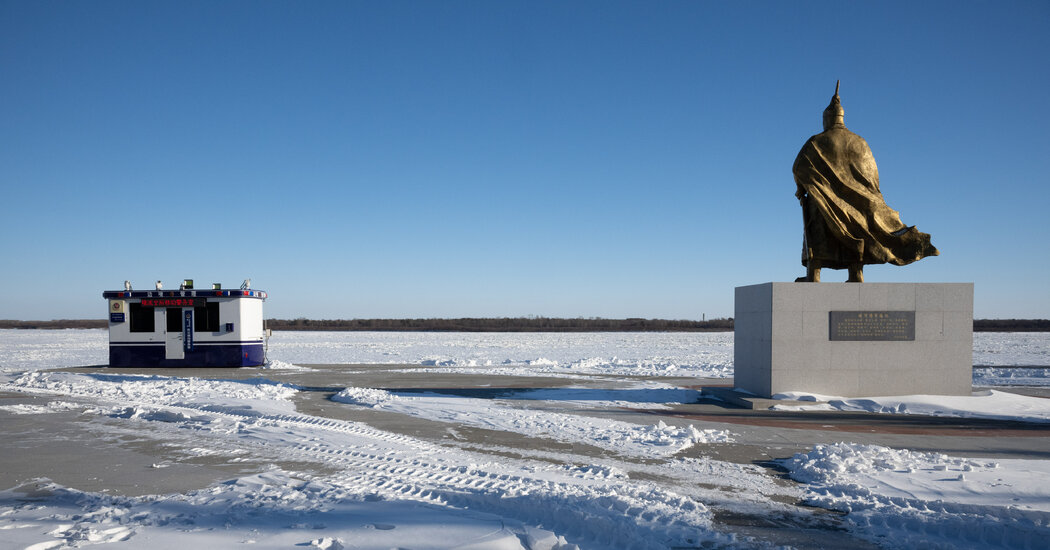The country’s trade with Russia this year has exceeded $200 billion, and makers of cars and trucks are the big winners.
On China’s snowy border with Russia, a dealership that sells trucks has seen its sales double in the past year thanks to Russian customers. China’s exports to its neighbor are so strong that Chinese construction workers built warehouses and 20-story office towers at the border this summer.
The border town Heihe is a microcosm of China’s ever closer economic relationship with Russia. China is profiting from Russia’s invasion of Ukraine, which has led Russia to switch from the West to China for purchases of everything from cars to computer chips.
Russia, in turn, has sold oil and natural gas to China at deep discounts. Russian chocolates, sausages and other consumer goods have become plentiful in Chinese supermarkets. Trade between Russia and China surpassed $200 billion in the first 11 months of this year, a level the countries had not expected to reach until 2024.
Russia’s war in Ukraine has also gotten an image boost from China. State media disseminates a steady diet of Russian propaganda in China and around the world. Russia is so popular in China that social media influencers flock to Harbin, the capital of China’s northernmost province in the east, Heilongjiang, to pose in Russian garb in front of a former Russian cathedral there.



This is the best summary I could come up with:
Xi Jinping, China’s top leader, and Russia’s president, Vladimir V. Putin, have made numerous public demonstrations of the nations’ close ties.
“Maintaining and developing China-Russian relations well is a strategic choice made by both sides on the basis of the fundamental interests of the two peoples,” Mr. Xi said as he met in Beijing on Wednesday with the Russian prime minister, Mikhail Mishustin.
German manufacturers like Mercedes-Benz and BMW used to be strong sellers in Russia, but they have pulled out in response to sanctions on the country by Europe, the United States and their allies.
But lower-middle-class and poor Russian families, whose members make up the bulk of the soldiers fighting the war, have stepped up purchases of affordable Chinese cars, according to Alexander Gabuev, the director of the Carnegie Russia Eurasia Center.
“Never before have we seen automakers from a single country gobble up so much market share so quickly — the Chinese came into a windfall,” said Michael Dunne, an Asia automotive consultant in San Diego.
But some laborers are finding work on the 2,600-mile Russian border, which until this year had a dearth of truck stops, customs processing centers, rail yards, pipelines and other infrastructure.
The original article contains 1,171 words, the summary contains 199 words. Saved 83%. I’m a bot and I’m open source!